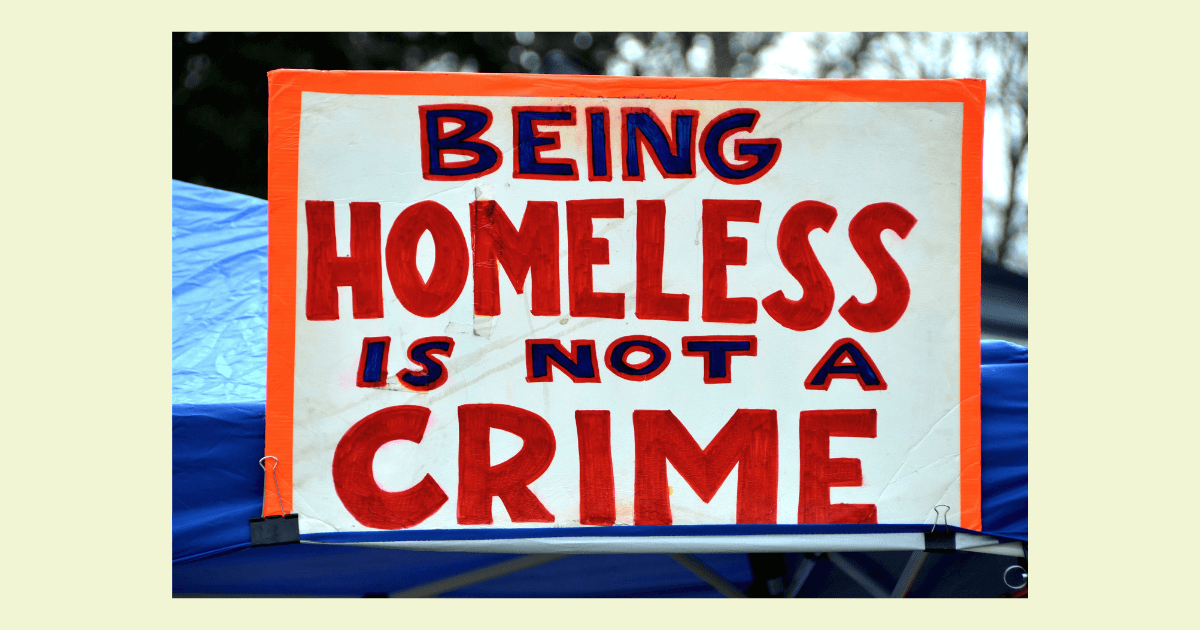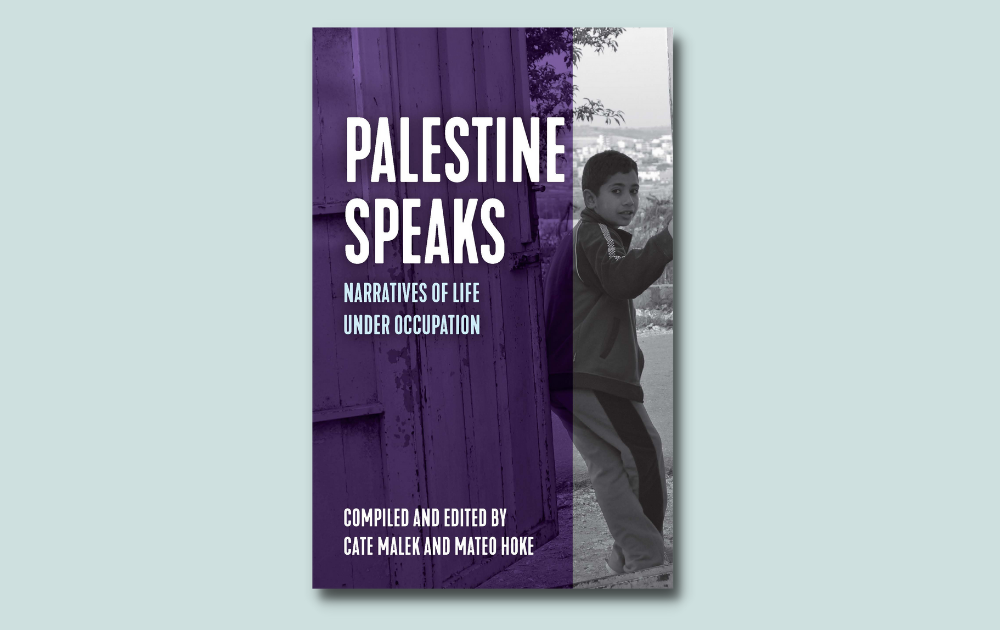A Q&A with Six By Ten co-editor Taylor PendergrassWe’re excited to share an inside look into one of the newest oral history projects from Voice of Witness: Six By Ten: Stories from Solitary Confinement.
Six By Ten will examine the impact of solitary confinement on people who have experienced it firsthand, as well as families, communities, and even prison guards whose lives have been touched by the system. Award-winning journalist and Palestine Speaks editor Mateo Hoke will co-direct this project with ACLU attorney Taylor Pendergrass.
Six By Ten is one of six projects Voice of Witness is currently incubating through the VOW Story Lab, which provides oral history training, editorial guidance, and project funding to human rights storytellers in need of institutional support. The project is a collaboration between Voice of Witness and the ACLU’s National Prison Project.
We hope you enjoy the interview below with co-editor Taylor Pendergrass.
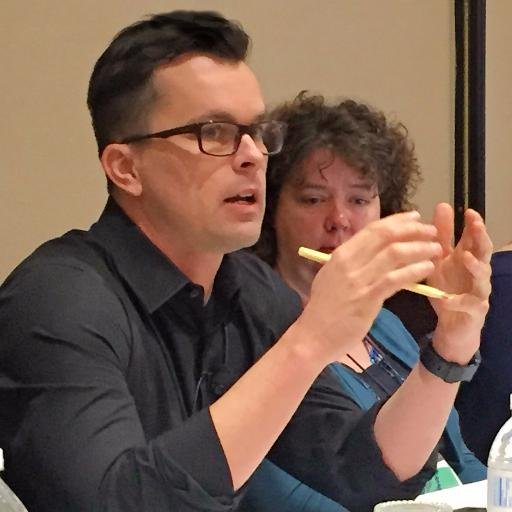 About the editor: Taylor Pendergrass has been gathering stories about the American criminal justice system for more than a decade. As a civil rights lawyer for the American Civil Liberties Union, Pendergrass has focused on bringing his clients’ stories out of the shadows and into the courtroom. Taylor has been counsel in major cases challenging “stop and frisk” policies, deceptive police interrogations, broken indigent defense systems, degrading jail and prison conditions, and arbitrary and discriminatory parole practices.
About the editor: Taylor Pendergrass has been gathering stories about the American criminal justice system for more than a decade. As a civil rights lawyer for the American Civil Liberties Union, Pendergrass has focused on bringing his clients’ stories out of the shadows and into the courtroom. Taylor has been counsel in major cases challenging “stop and frisk” policies, deceptive police interrogations, broken indigent defense systems, degrading jail and prison conditions, and arbitrary and discriminatory parole practices.
How did you first conceive of this project?
I’ve been working on the issue of solitary confinement for a long time, primarily as an advocate and a lawyer. In general, the type of work that I was doing was focused on taking a very small slice of a person’s experience, and trying to bring about change in the system through a lawsuit, or maybe through, at the biggest scope, a human rights report, and neither of those vehicles provides an avenue for giving a person a voice of their own.
Even with all the victories we might get in a court room, or public consciousness that you might raise in a human rights report, there’s still this missing element of letting the people who were most directly impacted just tell their stories and experiences in the most direct way.
So I was lamenting these things and talking with my dear friend Mateo Hoke, who co-edited Palestine Speaks and who I met through my activist work when we were at the University of Colorado in Boulder. And he basically responded by saying, “We should really think about doing a book with Voice of Witness.”
You’ve recently had some legal victories around the issue of solitary confinement. Can you say a little bit about that?
In a nutshell, we recently announced a final settlement agreement that will begin an overhaul of the way that the New York State prison system practices solitary confinement. So, solitary will be used a lot less frequently, for much shorter durations, and then the conditions of confinement in those solitary cells will start to improve a bit. For the first time, people will begin to get phone calls to their family and have access to far more reading materials and get rehabilitative programming within those units, rather than just being ignored for 23 hours a day.
The settlement is a major step forward, but at the same time, it is such an incremental move. It will take 5 years to implement the settlement agreement, and even if New York does everything that they say that they’re going to do, there will still be thousands, maybe over 2,000 people, in solitary confinement in the New York State prison system, and the conditions that they will be in are still very, very harsh, even if they are more humane than they might have been before.
So the legal work is a really important part of the overall movement, and it does achieve these types of successes that are necessary to move forward. But, at the same time, it only begins to scratch the surface of how the prison system uses solitary confinement.
Can you share a moment with a client or a potential narrator where you thought, Wow, this is a story that should be told?
I remember talking to one guy, who was about 23 years old. He’d had an extraordinarily difficult life as a child and a teenager. You could easily trace the arc from the circumstances that he grew up in, to the burglaries that he committed, and finally, to the one that landed him in prison.
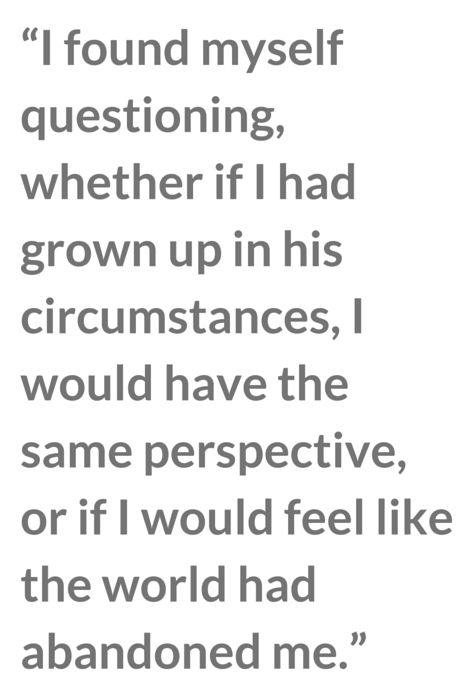 He talked very eloquently not only about his experience of being in prison and being in solitary confinement, but also about how the punitive culture of prison and the way that the prisons were run was reflective of a deeper choice that society made a long time ago, and how this was playing out and impacting him inside the prison walls.
He talked very eloquently not only about his experience of being in prison and being in solitary confinement, but also about how the punitive culture of prison and the way that the prisons were run was reflective of a deeper choice that society made a long time ago, and how this was playing out and impacting him inside the prison walls.
The kind of perspective that he had on life and his choices was really profound.
And I found myself questioning, whether if I had grown up in his circumstances, I would have the same perspective, or if I would feel like the world had abandoned me. And I think that would be a completely legitimate reaction to the type of environment that he grew up in.
But this act that he had committed to get into solitary was a serious assault on another prisoner, and for that reason, he is not going to be someone that we would ever make the face of a lawsuit. But his story is an example of what the long form of oral history provides the space to do. If you were just to say, “This 23-year-old young black kid was put into solitary confinement for slashing another person,” that’s a beginning and end of a story in a lot of people’s minds.
But what we’ll be able to do in this book is actually allow him to say in his own voice much more about who he is as a human being, how he got to the point that he did, why he ended up attacking someone, and his reflection on the consequences. I think this is the only venue that a story like this can be told in a way that’s compelling and allows the space for a complete picture of his experience.
What excites you most about the Six By Ten project?
I’m excited to tell some of the more complicated stories, some of the messier stories. It’s the hard cases, the really troubling ones, the ones that give us a lot of complexity on a moral level, that are the cases and the kind of issues that we really need to grapple with and tackle, as a society.
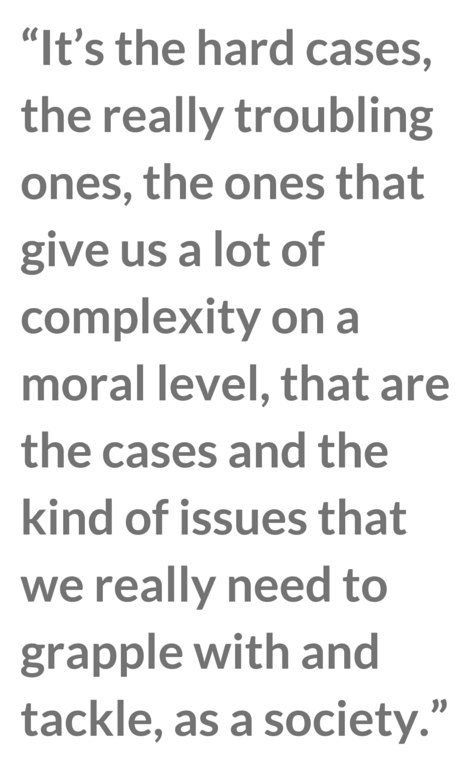 The fact that Voice of Witness also writes curricula in conjunction with the book, and that it reaches students all over the country, adds a whole other dimension of impact and excitement to the project.
The fact that Voice of Witness also writes curricula in conjunction with the book, and that it reaches students all over the country, adds a whole other dimension of impact and excitement to the project.
In my work with the ACLU, I think we could do a better job of connecting with young people, especially young people who live in the affected communities that will often be the subject of the police enforcement that leads to the first jail stint, that leads to more crime, that leads to prison. So having the opportunity to participate in a project that has educational reach is something that I care very deeply about.
A book like this will also make young people who will one day be lawyers and policy makers and teachers and members of the public aware of this issue, so that five years from now, or ten years from now, we’re still continuing to plug away at winning the incremental successes in the courtroom and in the legislatures.
Where are you now with the project, and what would funding allow you and Mateo to accomplish this summer?
Mateo and I have been doing a significant amount of outreach using the network that I’ve been plugged into for a long time of prisoner advocates, and activists, and family member associations.
Our vision for the project is to try to get narratives from as diverse an array of people and experiences as possible—whether it’s immigration detention or county jail, or a prison. We want the book to reflect a diversity of experience geographically, racially, and otherwise, so Mateo and I need to be able to go to these different places all over the country and gather those narratives.
Also, to be done right, these oral histories need to be done in person. It probably would not surprise anyone to learn that recounting these experiences can be extraordinarily difficult and even traumatic for people who have spent any amount of time in solitary confinement. So the time it takes to develop the relationship and then sit down with that person and really pull out a rich narrative is very time intensive.
Support this summer also means that Mateo and I can pour ourselves into editing the narratives and making them accessible in a way that will make the book as powerful as possible for the reader.
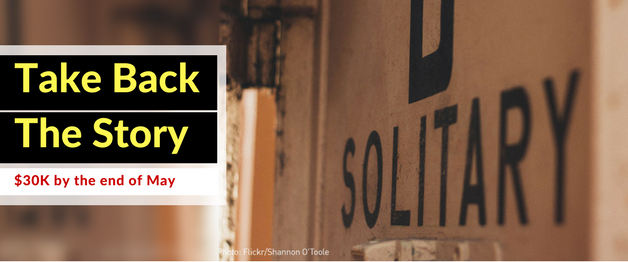
Click to help Taylor & Mateo amplify stories of solitary confinement this May.
Make a Gift Today


